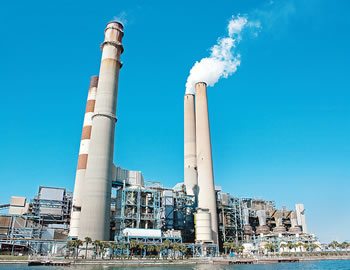In an attempt to arrest the volatility at the crude oil international market, member countries of the Organisation of Petroleum Exporting Countries (OPEC) met recently in Algeria to discuss possible crude oil output freeze among members with the aim to move crude price north.
However, Nigeria will enjoy an exemption in production cut as the group tries to steady oil prices slump in November.
After about a reported 48 hours of consultation amongst its members in Algiers, the capital of Algeria, the OPEC agreed to effectively cut their oil production volumes to 32.5 million barrels per day (mbpd) from around 33.24mbpd, thus shaving off about 0.74mbpd.
The news of the production cut by the group came to the oil industry as a landmark deal, one which will see output levels for each member country determined in November 2016, but will also exclude three of its members, Nigeria, Iran and Libya from participating in the output cuts due to their peculiar production challenges.
Reportedly coming for the first time in about eight years, the deal according to AFP was largely successful on the back of Saudi Arabia softening its stance on its arch-rival Iran as well as on the mounting pressure from low oil prices.
While the group would reduce their output to 32.5mbpd, and determine how much each country will produce at the next formal meeting, it also hopes to extend an invitation to non-OPEC countries such as Russia, to join in the output cuts, at least to buoy its desire to see some improvements in prices.
Why Nigeria should use the opportunity to stabilise Niger Delta
The deal was coming at a time when Nigeria is faced with the steady disruptions of production from her oil fields; the OPEC deal has provided Nigeria an uncommon opportunity to stabilise the Niger Delta region.
The deal, according to reports, will exempt Nigeria from participating in the output cuts. It will perhaps allow the country to produce at levels previously allowed for the simple reasons that it has had a significant drop in her production from February 2016 when militants in the Niger Delta took to destroying oil facilities in the region.
From a 2016 budget production benchmark of 2.2mbpd, the country’s production slipped to about 1mbpd and then 1.2mbpd as recently disclosed by the Minister of State for Petroleum Resources, Dr Ibe Kachikwu.
Kachikwu had said that so far the ceasefire negotiated by the government with the Niger Delta militants has enabled production from oil fields in the region to come up to 1.75mbpd. He added that this was, however, expected to rise to 1.8mbpd by October and then 2mbpd by December 2016. The OPEC deal could be a sweetener to this plan and expectation.
In a statement acknowledging its delight with the deal, the ministry predicted the success of the deal to the loosely tied role Nigeria and some others played in refocusing OPEC to work harmoniously to identify the needs and challenges that are peculiar to it and surmounting them.
It explained that one of the key challenges was the low price of oil in the international market and how it had largely affected the economies of its member countries.
The statement noted that Kachikwu led the request for the exemption of Nigeria from the production cut, adding that the concession was given considering the recent challenges the country has been through.
WATCH TOP VIDEOS FROM NIGERIAN TRIBUNE TV
- Relationship Hangout: Public vs Private Proposals – Which Truly Wins in Love?
- “No” Is a Complete Sentence: Why You Should Stop Feeling Guilty
- Relationship Hangout: Friendship Talk 2025 – How to Be a Good Friend & Big Questions on Friendship
- Police Overpower Armed Robbers in Ibadan After Fierce Struggle





